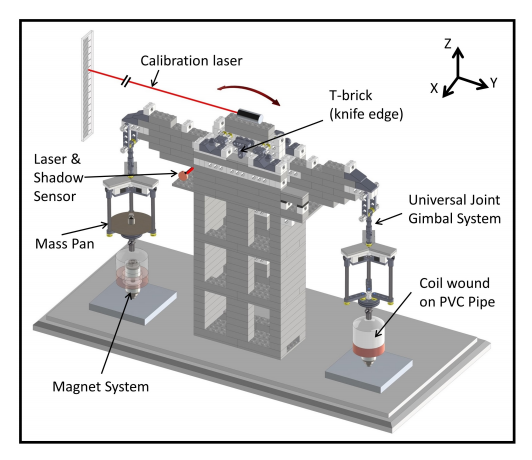Planck's constant is one of the fundamental constants of the universe. E=hν is an equation relating the energy of light (E) to the frequency of light (ν), where h is Planck's constant. You can measure this constant in a number of ways, including the use of a watt balance. A watt balance measures the difference between the gravitational pull on an object and the the force pulling on that object by a magnetic field produced by an electromagnet. Since the calculation of the force of the electromagnet includes Planck's constant, the data can be deconvoluted to solve for h. Leon Chao and colleagues at the National Institute of Standards and Technology have designed a
LEGO watt balance. BTW, for the last 139 years the kilogram has been officially defined by a chunk of metal stored in a vault in France. At recent meetings of the International Committee for Weights and Measures (sounds like a fun group) they have discussed changing the official definition of the kilogram to one based on Planck's constant by the use of a watt balance.
Fun new fact for me - metrology is the science of measurement. I didn't know that one until reading up on the use of the watt balance.



No comments:
Post a Comment